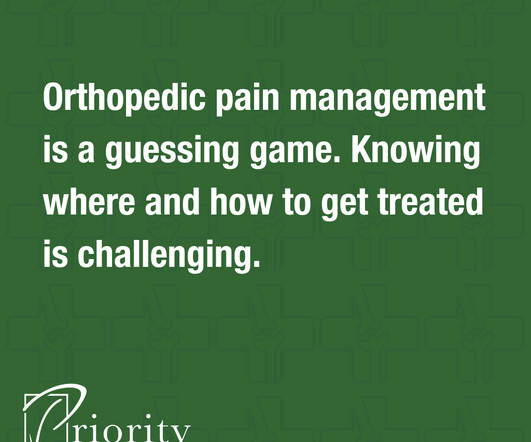Orthopedic Pain Management: When to Skip the Specialist
Priority Physicians
JANUARY 20, 2025
member login CONTACT US About Us Concierge Medicine Services Our Physicians Locations Member Login Contact Us L Orthopedic Pain Management: When to Skip the Specialist January 21, 2025 Orthopedic pain management is a guessing game. Typically, a patient wants an X-ray , pain relief, and the quickest path back to normal living.












Let's personalize your content